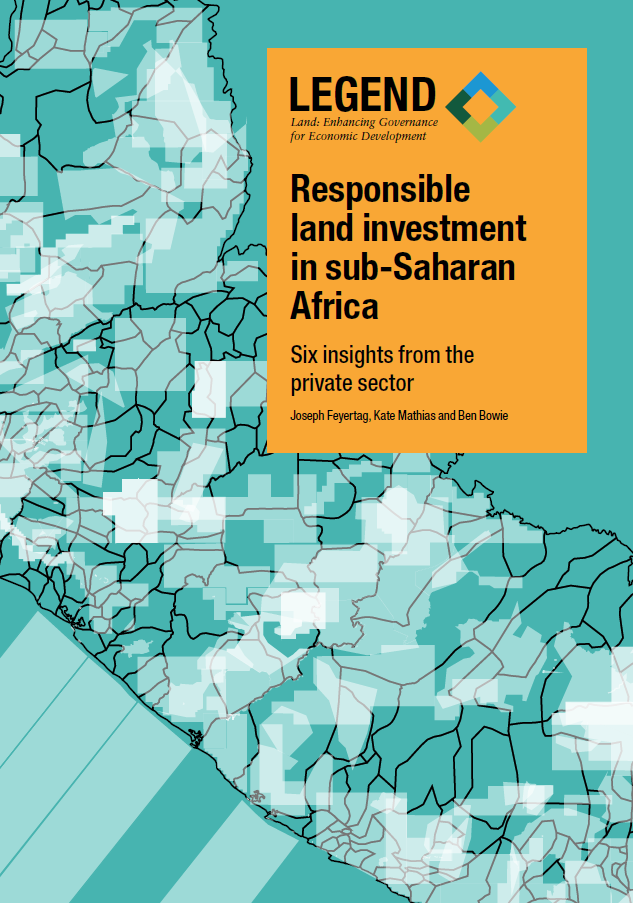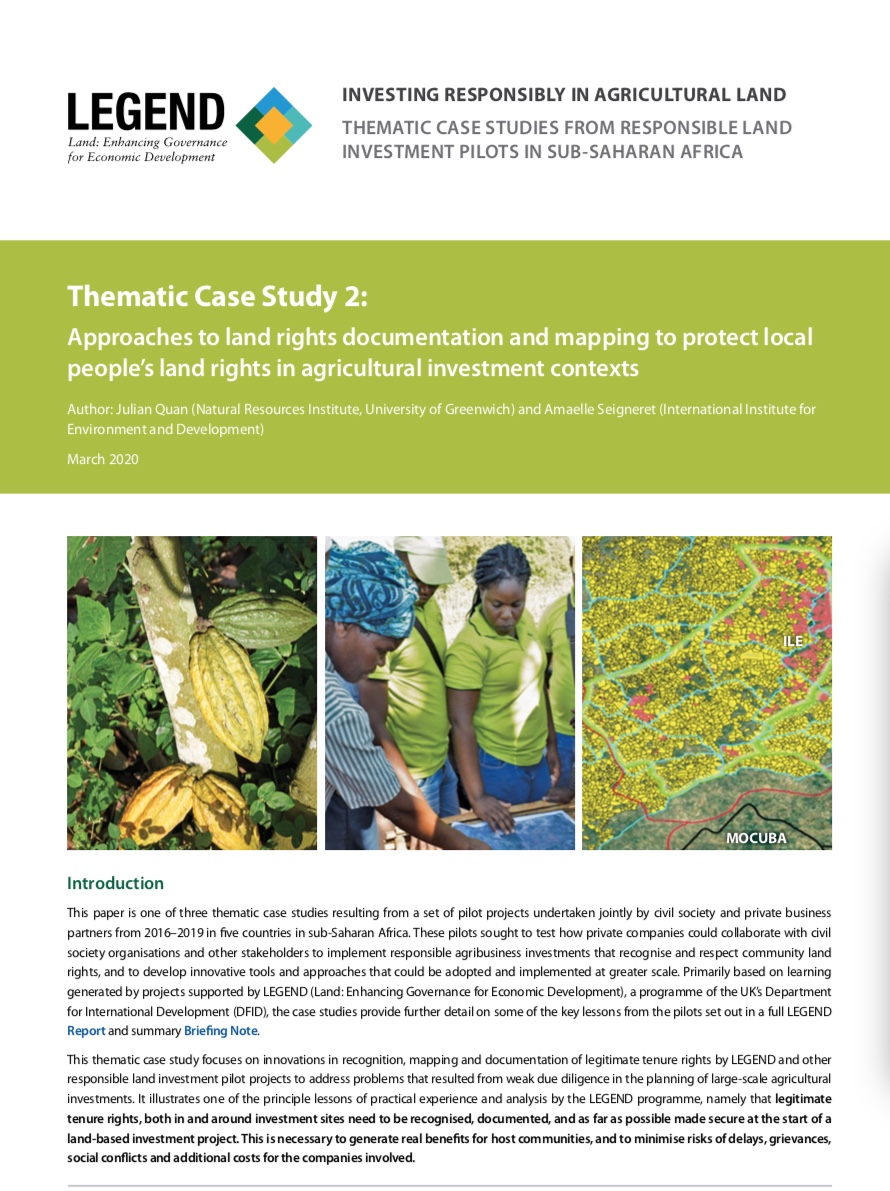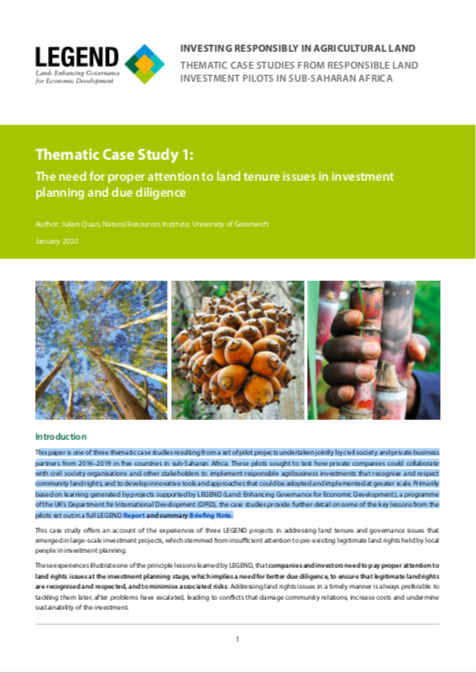Sub-Saharan Africa (SSA) failed to meet most Millennium Development Goals (MDGs). The Sustainable Development Goals (SDGs) require knowledge-intensive actions that weigh development goals against sustainability options with several possibilities in various contexts. Land resources are the…
This briefing consists of six insights drawn from the feedback of qualitative interviews with 37 companies aiming to invest responsibly in land, drawing on key principles from the CFS-RAI Principle 5 and the Voluntary Guidelines on the Responsible Governance of Tenure (VGGT).
This slide deck present's LEGEND's work on responsible land investment in sub-Saharan Africa.
This paper is one of three thematic case studies resulting from a set of pilot projects undertaken jointly by civil society and private business partners from 2016–2019 in five countries in sub-Saharan Africa. These pilots sought to test how private companies could collaborate with civil society…
The Support to Responsible Agricultural Investments project (S2RAI) promotes internationally recognised principles and guidelines such as the Voluntary Guidelines on the Responsible Governance of Tenure of Land, Fisheries and Forests (VGGT), and Responsible Agricultural Investment (RAI) to…
The movement to secure women’s land rights in Senegal needs to take into account the rights of all sections of the targeted communities. Hence, the cases presented testify to specific situations along with evaluations of initiatives targeting improvement of women’s land rights. For instance,…
This paper is one of three thematic case studies resulting from a set of pilot projects undertaken jointly by civil society and private business partners from 2016–2019 in five countries in sub-Saharan Africa. These pilots sought to test how private companies could collaborate with civil society…
With the current population of 40 million and 213 inhabitants per km², Uganda is one of the most densely populated countries in Africa. Yet land is a fixed asset. Of all the land in Uganda, approximately 80% of the land area is administered under customary tenure system and approximately 5% only…
Uganda has been struggling to maintain a conventional (European-type) land administration system for a long time but has faced many challenges including lack of funding, inadequate skill force and long- winded procedures. Up to present, the country has only managed to record less…
Land in Uganda is a delicate resource that has caused many conflicts over the past years. About 80% of pending court cases in the country relate to land today. Looking at the country’s violent history, a rising population and increasing impact of climate change on agriculture productivity, land…
This report summarizes the implementation activities, “policy intersections” and the subsequent production of a draft model Land Use Bill (LUB, 2018) for Nigeria. This study broadly focused on land use intersections to determine appropriate policy for countering the problem of land rush/land…
Government intervention and local level coordination of large-scale investment decisions are important components required for positive impacts on food security, nutrition and livelihoods of host communities. This policy brief reviews two case studies which illustrate the effects of foreign…









